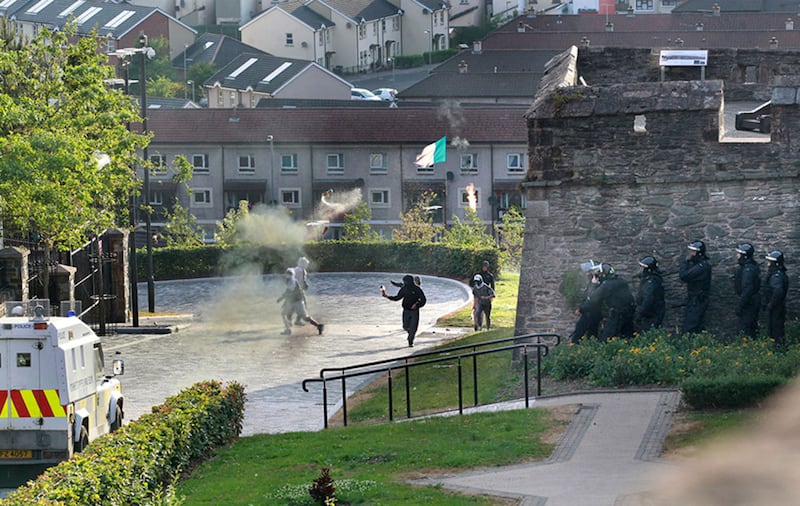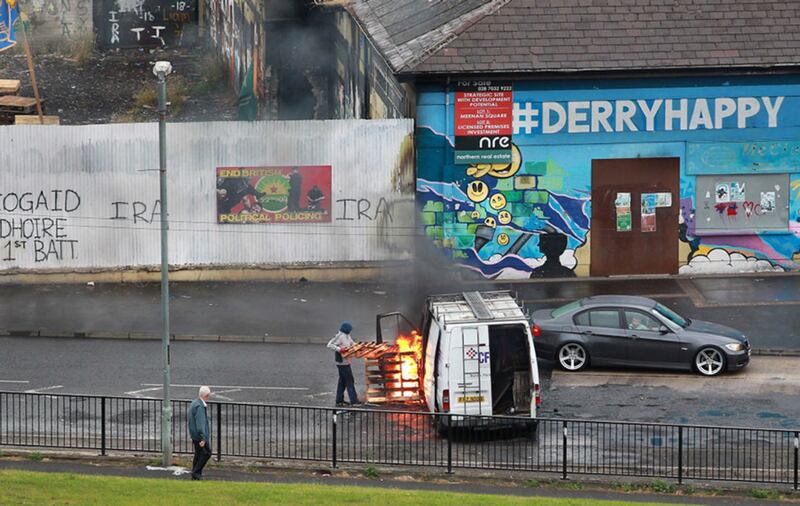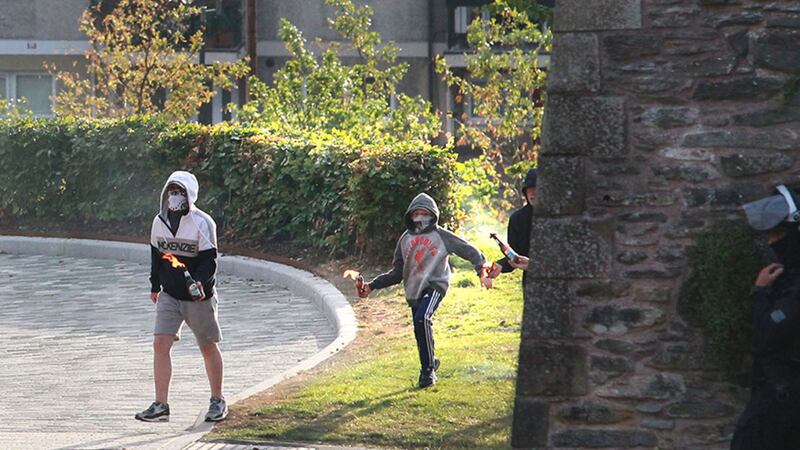LAST week saw some of the worst street disturbances in Northern Ireland in years, with cars and buses hijacked in Belfast and children as young as eight years old throwing petrol bombs and bricks at police officers in Derry.
Most of us, even us cynical journalists, had grown quite accustomed to a relatively peaceful July after years of battening down the hatches for the marching season and hoping that, when we emerged blinking in the sun around the 14th, the place would be still be standing.
The vast majority of us parents want our kids to grow up in a normal society, one where they are afforded opportunities that were not given to us because of the whole 'growing up during a war' thing.
We want our children to have good education, jobs, good health care, a decent life in a civilised society.
Last week, as the images were coming out of Derry of kids throwing deadly petrol bombs at police, or lobbing stones over a peace wall at their Protestant neighbours, I'm sure I wasn't the only parent who wondered where it had all gone wrong.
In Northern Ireland, our tensions are forever bubbling under the surface. People say that it will take perhaps a generation for that to die away.

We were told when the Good Friday Agreement was signed that our children will have peace and that our grandchildren will know nothing but peace.
But last week's events have shown that we are still handing down that burden of hatred, distrust and sectarianism to the next generation quite skillfully.
I was on riot duty last week and I saw for myself the hatred in the eyes of some of our children. I witnessed Protestant youths – born into peace, some of them two years after the Agreement – shouting sectarian abuse at Catholic youths from the city's walls.
I saw Catholic youths, some of them not long out of primary school, give as good as they got in the sectarian insult stakes. And that was before the stones, bottles and petrol bombs were thrown at police from the Bogside.

Officers there, many of them fathers and mothers themselves, were saddened at the sight of this city's youth resorting to violence.
The night after the gun attack, one female officer stationed on the walls told me that she hoped she would make it home to her two toddlers.
This is what we have become. This in Northern Ireland in 2018. Poor people attacking other poor people because of their religious and cultural beliefs and children attacking police officers stuck in the middle.
Something has gone very badly wrong with the next generation of Northern Irish people – we have let them down.
With our political nothingness we have allowed a vacuum to be created which is only too happily filled by those who wish to drag us back to the past.
We have allowed our violent past to be glorified and romanticised by means of elaborate commemorations, plaques, memorials and murals which capture the imagination of our young people and has them aspiring to be idols too.
We have allowed our green and orange politicians to run this part of the world into the ground so that no one in their right mind will invest, create jobs and therefore create prosperity and hope for our young.

Our politicians, who put out statement after statement of condemnation last week, are certainly not blameless in this situation. The dark, empty corridors of Stormont laying ceaselessly dormant have only exacerbated the dire circumstances some of our young people are dealing with.
It's no coincidence that these disturbances happen in working class areas, where hope for the future is so hard to find. Those areas are impacted most by cuts.
It's easy to condemn, it's easy to demonise. But it's not helpful. We need to find out what makes young people lift missiles to throw at their neighbours and, whatever the reason – be it frustration, an attraction to dissident republicanism, a hatred for the police or a penchant for anti-social behaviour – however uncomfortable it may be, we need to find a solution.
Once the smoke dissipates and the dust settles on the disturbances and we go back to normality, we must try once again to get to the core of the problem that has sparked this violence so that we don't lose another generation to a new brand of Troubles.







